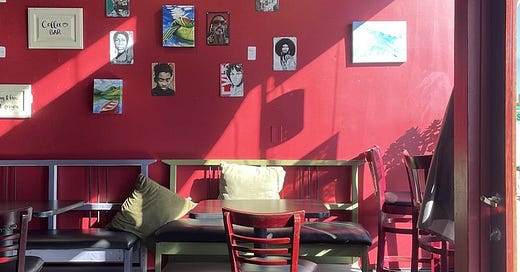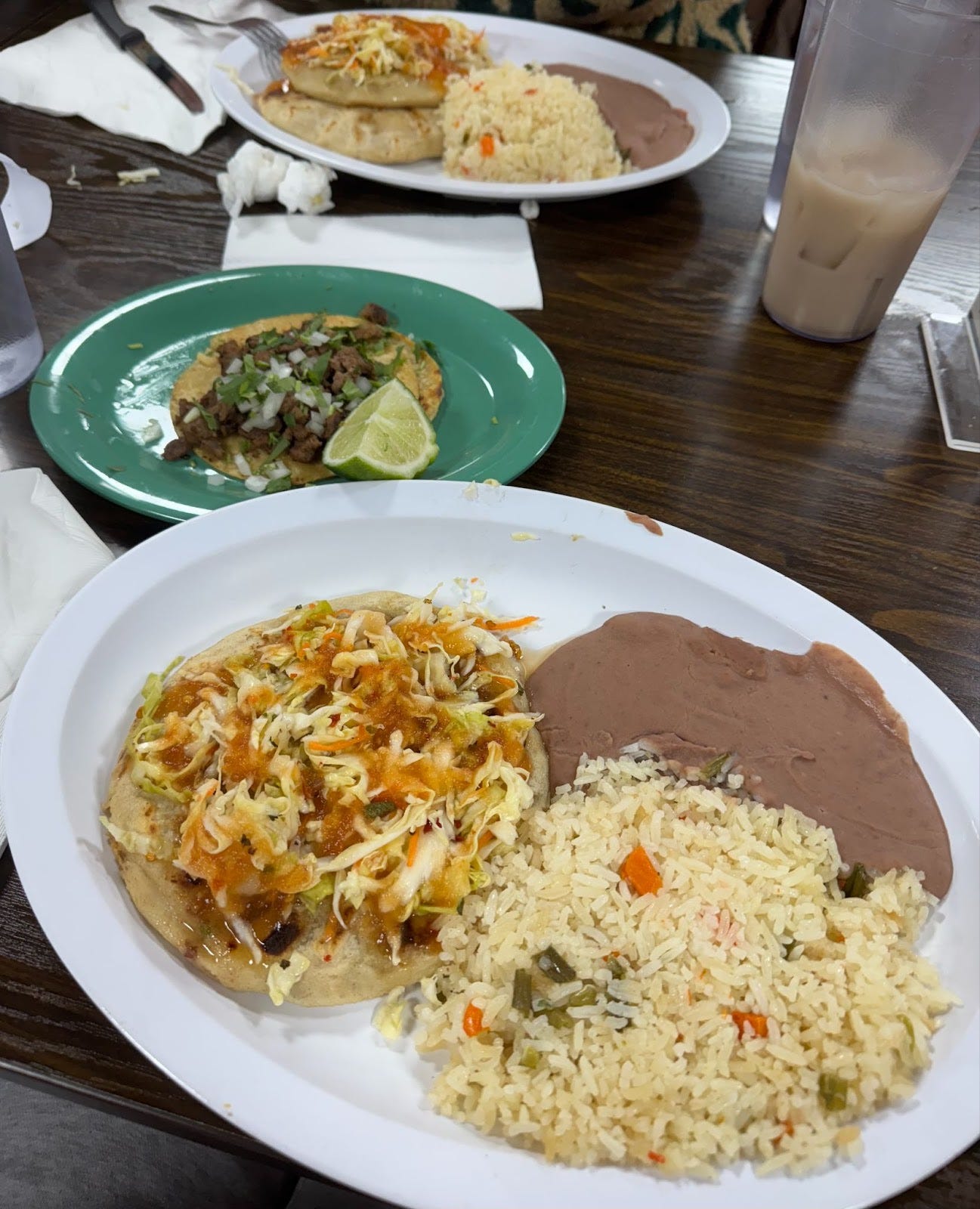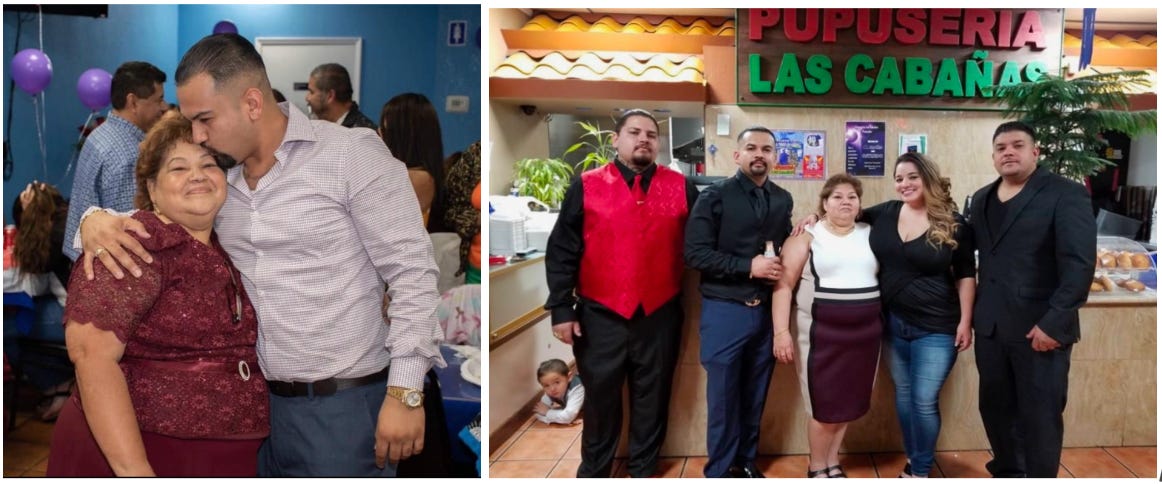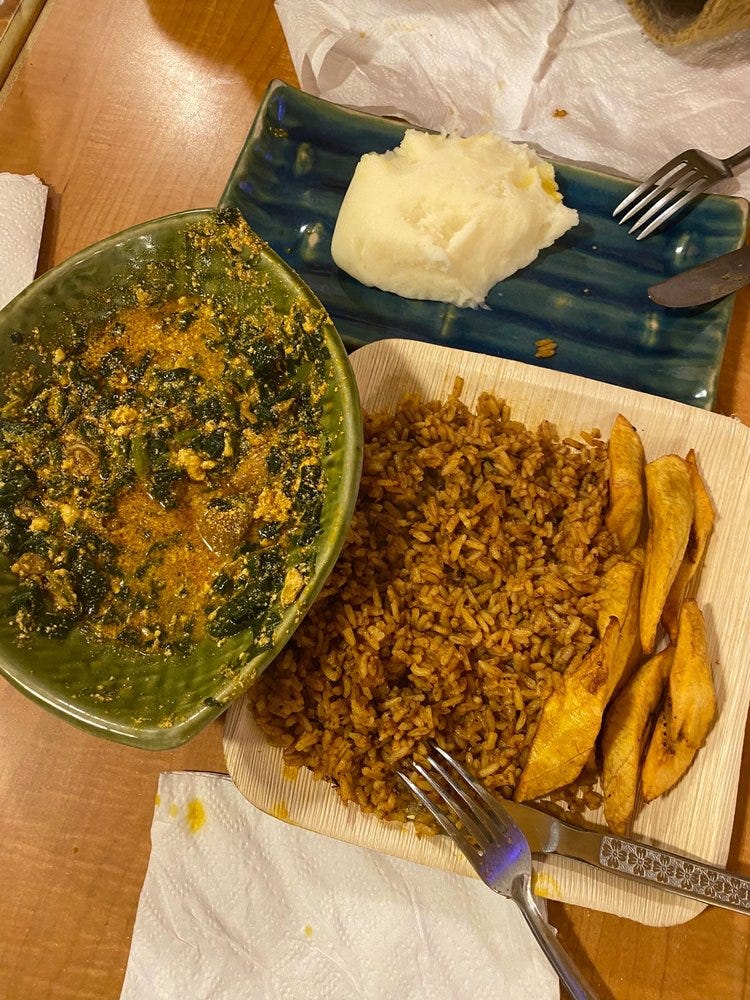Feeding The Future: The Role of Local Restaurants in Economic Progress
Exploring the Impact of Federal Funding on the Local Restaurant Scene and the People Behind the Menus
Federal Dollars, Local Impacts
This January marked Hayward’s 2nd Annual Restaurant Month, celebrating the city’s culturally rich food scene. The initiative was approved by the Hayward City Council Economic Development Committee (CEDC) and implemented by the Economic Development Division as part of a broader package of pandemic recovery programs aimed at supporting local small businesses. This year, over 20 participating restaurants offered special menu items and discounts to customers using Together for Hayward Gift Cards.
In 2021, Hayward received $38,000,000 in Federal funding through the American Rescue Plan Act (ARPA), which allocated $350,000,000,000 to State and Local governments for equitable economic recovery following the COVID-19 pandemic. The City allocated $2,000,000 over three years to support local businesses and the resident workforce under the Hayward Upward Economic Recovery Plan. The entire budget has been used, through the approval and implementation of seven main programs and six additional spin-off initiatives. These programs have benefited 179 businesses, over 2,700 employees, and more than 500 residents, according to a December 2024 CEDC report on the plan's impact. The 2nd Annual Restaurant Month is just one example of how Federal funding is helping support Hayward’s local restaurant scene.
Since taking office, President Trump has signed several executive orders rolling back protections for racial, ethnic, and LGBTQ+ rights, including those that impact the equitable distribution of Federal funding based on census data – such as ARPA funds. According to the National Restaurant Association, 50% of restaurant workers are ethnic minorities, with 6 in 10 cooks coming from diverse racial backgrounds.
President Trump also plans to impose a 25% tariff on imports from Canada and Mexico, with potential tariffs of up to 60% on Chinese imports. These policies could restrict access to Federal funding, raise costs for restaurants, and limit the availability of imported goods within California's food industry. Despite generating $152,100,000,000 in revenue in 2023, restaurants are grappling with rising costs and shrinking profit margins in an already tough, low-margin industry. By dining locally, we support both the local economy and one of the nation's most diverse industries.
Supporting locally owned restaurants, rather than corporate chains, can make a real difference. Small businesses, with their smaller customer base and fewer resources, are hit hardest by economic changes. Local restaurants do more than serve food – they build community. Unlike large corporations, locally owned restaurants are invested in their neighborhoods, supporting local causes, hiring residents, and creating spaces for connection. Choosing local means supporting a culture of care, authenticity, and personal ties. Hayward’s food scene is a great example, reflecting the spirit and diversity of the community. Here are just a few local spots worth checking out.
Note: Not all restaurants featured in this article participated in Hayward’s Annual Restaurant Month. The included restaurants did not contact the Hayward Herald for inclusion and did not provide free meals as part of the reporting.
Pupuseria Las Cabañas Bar & Restaurant
Angela Leiva always dreamed of serving fresh, authentic Salvadoran food and began selling pupusas near Mexico Super in 2004. Nearly 20 years later, her sons, Franki Martinez and Joe Vasquez, carry on her legacy at Pupuseria Las Cabañas, where they continue to serve her original recipes.
I often visit Pupuseria Las Cabañas with friends for delicious, hearty pupusas paired with a refresco or the occasional margarita flight. While there is usually a short wait, it’s always worth it for the fantastic dining experience and excellent customer service. When I asked Franki what keeps people coming back and waiting for their next meal, his answer was simple: quality.
“Our chicharon – we’ve been using the same recipe since we’ve started. It’s a 3-day process but it’s always been like that. You could buy it pre-made but we don’t do that. Or the atol de elote – it’s delicate and labor intensive and only two people in our restaurant know how to make it.” Franki Martinez
Franki also emphasized the importance of investing in and empowering his staff. Since taking the helm of Pupuseria Las Cabañas after Angela’s passing, he has focused on strengthening the business foundation by leveraging technology and implementing training manuals and recipe books. A proud and driven entrepreneur, Franki embodies the values instilled in him by his mother, Angela. In her book Si Yo Puedo Tú Puedes (If I Can, You Can), Angela shares her journey from growing up in El Salvador to becoming an entrepreneur, ensuring her story and values continue to inspire others.
Beyond serving delicious food, Franki places a strong emphasis on paying it forward – a value that was deeply important to Angela. Pupuseria Las Cabañas hosts an annual fundraiser for the Ayúdame a Vivir Foundation, which provides comprehensive, high-quality medical care to children with cancer in Salvadoran communities. This tradition was inspired by Angela’s long-standing support for the St. Jude Foundation.
“For her to have built what she did, I want people to know anything is possible. I think that’s what she would want to tell people.” Franki Martinez
Snappy’s Café

This June, April Yamaguchi will celebrate 15 years of serving locally roasted coffee and café fare at Snappy’s Café in Downtown Hayward. Since opening in 2010, she has worked to cultivate community by offering pop-up space to local artists, businesses, and musicians, helping to create a vibrant café culture.
I visit Snappy’s for their signature hot Caramel Francis – a French vanilla latte with a swirl of caramel, topped with whipped cream. The drink is named after one of the café’s first regulars, who worked at the Pistons Car Care Center (now Big O’Tires) on the corner of Mission and A Street. Another favorite is the Turkey & Veggie Melt sandwich, with some customers opting for a jalapeño bagel instead of wheat bread. During Hayward Restaurant Month, they offered a coconut caramel latte, which may return to the menu in the future.
“Francis originally asked for a caramel macchiato topped with whipped cream. He then started recommending it to his customers, who would come in asking for ‘the caramel drink Francis orders.’ I didn’t want to call it a caramel macchiato, so I decided to name it Caramel Francis instead.” April Yamaguch
Originally from Tokyo, Japan, April grew up visiting tea houses and cafés with her mother and siblings after school. She later studied food science at UC Davis, where she fell in love with the college town’s café culture. After moving to Hayward in 1995, she dreamed of one day owning a café – a place where people could come together and feel a sense of community. Having lived and worked in Hayward for 15 years, April was finally ready to open her own café and began brainstorming business names. It soon became clear that the name should evoke those cherished childhood trips to tea houses with her family.
“We wanted a unique name with an animal and my brother collected turtles. Instead of Snappy Turtle Café we decided to add a turtle to the logo. Now we say it is Snappy’s Café.” April Yamaguchi
From the very beginning, the community has been at the heart of Snappy’s Café. Menu items are inspired by regulars, customers donate books to the café’s little free library, and much of the furniture is crafted by a loyal patron who enjoys upcycling. Each month, April offers performance space to musicians and showcases local artists, giving them a platform to display and sell their work. The turtle figurines and paintings adorning the café's walls and shelves remain, all of which are gifts from loyal customers.
Despite the challenges of social distancing during the COVID-19 pandemic, April continued to collaborate with local artists and small businesses that were forced to close, fostering a sense of community. Café tables were transformed into pop-up retail spaces for handmade face masks, locally made honey and sauces, artwork, and various home goods. Books On B, one of the many small businesses deemed non-essential during the pandemic, maintained steady sales by offering order pick-ups at Snappy’s Café – a partnership that continues to serve customers today. In 2023, April was honored as Small Business Person of the Year by the Hayward Chamber of Commerce, recognized as a pillar of the local business community for her resilience and leadership throughout the pandemic.
“I realized without B Street businesses the café would be at risk of closing. It is a win-win when supporting other small businesses and artists.” April Yamaguchi
Golden Safari
For nearly 10 years, Shubbie Aishida has passionately served the Hayward community with fresh, authentic Nigerian cuisine at Golden Safari. Each dish is carefully prepared using traditional cooking methods and fresh, organic ingredients imported from Africa.
I love visiting Golden Safari for their egusi soup, a rich and flavorful dish made from ground melon seeds, peppers, and green vegetables, served with pounded yam (fufu). Other fan favorites include jollof rice, the grilled tilapia plate, and any of their freshly made drinks – my personal favorite being the zobo hibiscus drink. During Hayward Restaurant Month, customers could enjoy a limited time $20 prefix menu, featuring a choice of appetizer, entrée, and drink.
“We are happy to be here in Hayward, the Heart of the Bay. It’s a blessing to share our culture through food. People come from all over the Bay to our restaurant.” Shubbie Aishida
Community and food have always been central to Shubbie’s life. Growing up in Lagos, Nigeria, her parents worked in the culinary field, and she often had cooking competitions with her siblings. She shared many meals with neighbors, deepening her connection to food as a way to bring people together. After completing graduate school in London, Shubbie moved to San Jose and eventually settled in Hayward. With encouragement from friends and family, she began establishing Golden Safari in 2015, starting by securing a physical restaurant space. After two years of preparation, she planned a soft opening – and has kept the restaurant open ever since.
“Golden Safari isn’t just a place to eat – it’s a place to experience a piece of Africa, one bite at a time.” Shubbie Aishida
Shubbie has since used Golden Safari as a platform to drive meaningful change for Hayward’s most vulnerable residents. During the COVID-19 pandemic, the restaurant provided meals to essential workers, including fire, hospital, and postal staff. Inspired by this experience, Shubbie became committed to continuing her work of feeding those in need. This passion led her to found The Peace Haven Freedom Store – a free grocery store for low income families, seniors, and those experiencing housing insecurity.

Through partnerships with the Alameda County Food Bank, local nonprofits, and food establishments, unused edible groceries destined for the landfill are placed on The Freedom Store’s shelves. Golden Safari contributes its commercial kitchen space and food handling services to repackage various meats and grocery items for the store. Unlike a traditional food bank, The Freedom Store allows people to browse the shelves and fridges, selecting the items they need, creating a sense of dignity and normalcy for those shopping. Volunteers and adults with disabilities participating in the Inspire Higher integration and skills training program assist at the store, from stocking shelves to ensuring that everyone receives their designated number of free grocery items – creating a nurturing and empowering opportunity for all involved.
“Without Golden Safari there wouldn’t be a Peace Have Freedom Store.” Shubbie Aishida
Feeding Progress
To promote Hayward Restaurant Month, the Economic Development Division reached out to local restaurants, including Snappy’s Cafe and Golden Safari. The Together for Hayward Gift card promotion was launched using ARPA funds, with $500,000 of the $2,000,000 budget allocated for community gift cards. Residents purchasing $100 Together for Hayward Gift Cards were entered into a weekly drawing to win one of sixteen $100 gift cards. According to a February 2024 CEDC staff report, 15 of the 18 participating restaurants saw sales from the gift card program during the first two weeks of January 2024 Restaurant Month.

Local media coverage, including features in The East Bay Times and KTVU Fox 2, helped further boost sales, driven by the Economic Development Division’s promotional efforts. The report noted that the launch and promotion of Hayward Restaurant Month cost the city nothing other than staff time. While most participating businesses were located in Downtown Hayward, there are opportunities for the Economic Development Division to engage the Jackson, Tennyson, and Mission corridors more effectively – such as with Pupuseria Las Cabañas at the far end of Mission Blvd.
Under the current Trump administration, it is uncertain whether Hayward will continue receiving Federal funding for equitable local investments, due to the administration's opposition to diversity, equity, and inclusion (DEI) initiatives. While Hayward's restaurants and small businesses have benefited from the City’s use of Federal ARPA funding, it’s clear that these investments have had a positive impact. Many local restaurants continue to reinvest in the community and economy, demonstrating the lasting benefits of Federal support.
Where money is spent and how it is spent matters, especially with Federal funding at risk. Although Restaurant Month has ended, let’s urge CEDC members – Mayor Salinas, Councilmember Andrews, and Councilmember Bonilla – to maximize current Federal funding to support Hayward’s local economy. By coming together as a community over a delicious meal at any of Hayward’s diverse local restaurants, we not only nourish our bodies but also strengthen the ties that bind us, all while supporting the businesses that keep our economy thriving.










